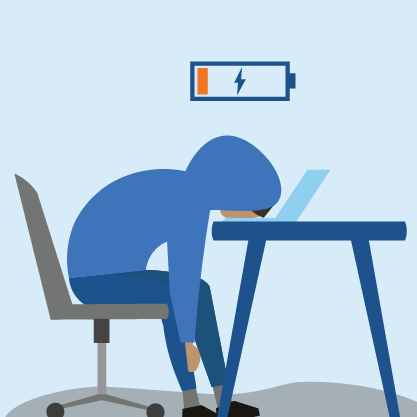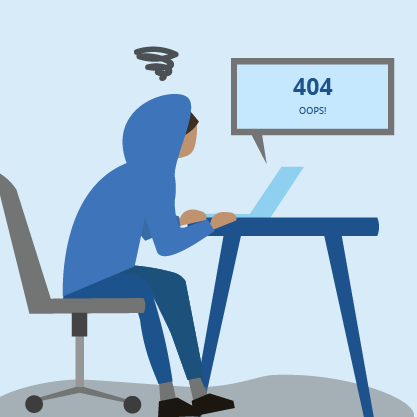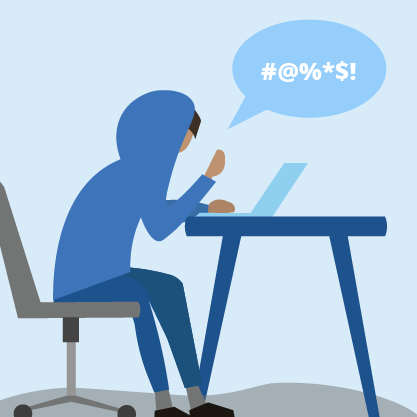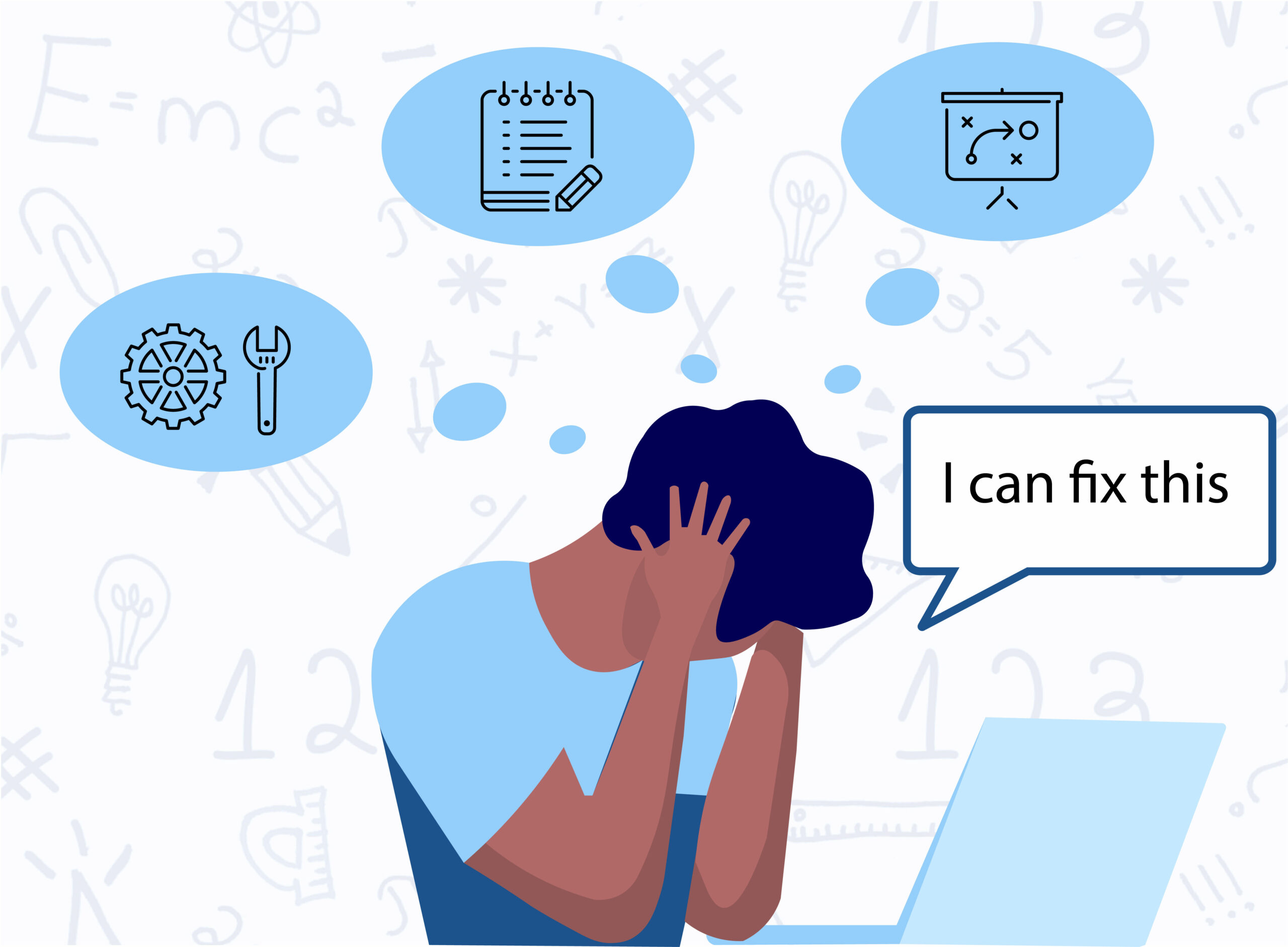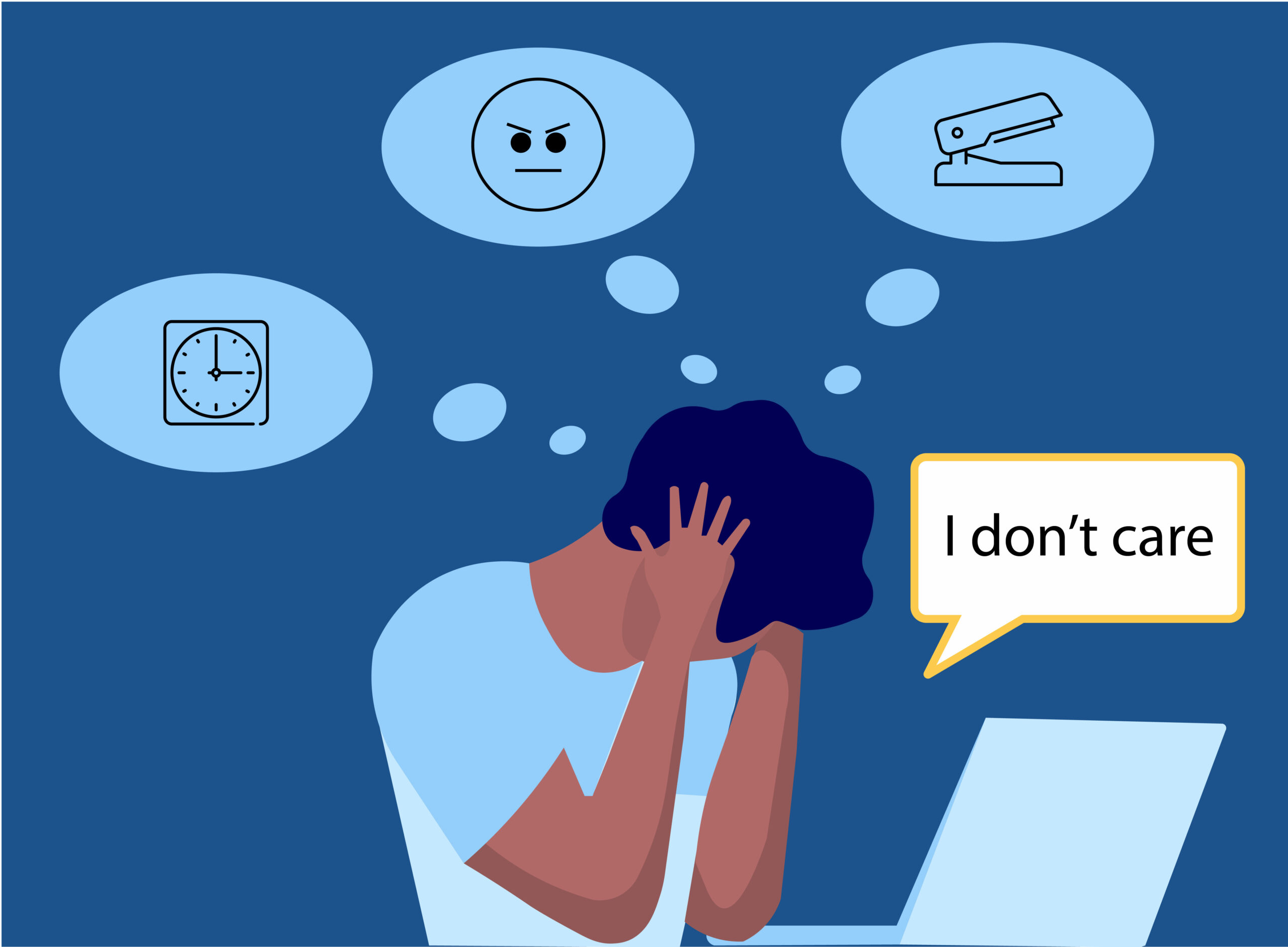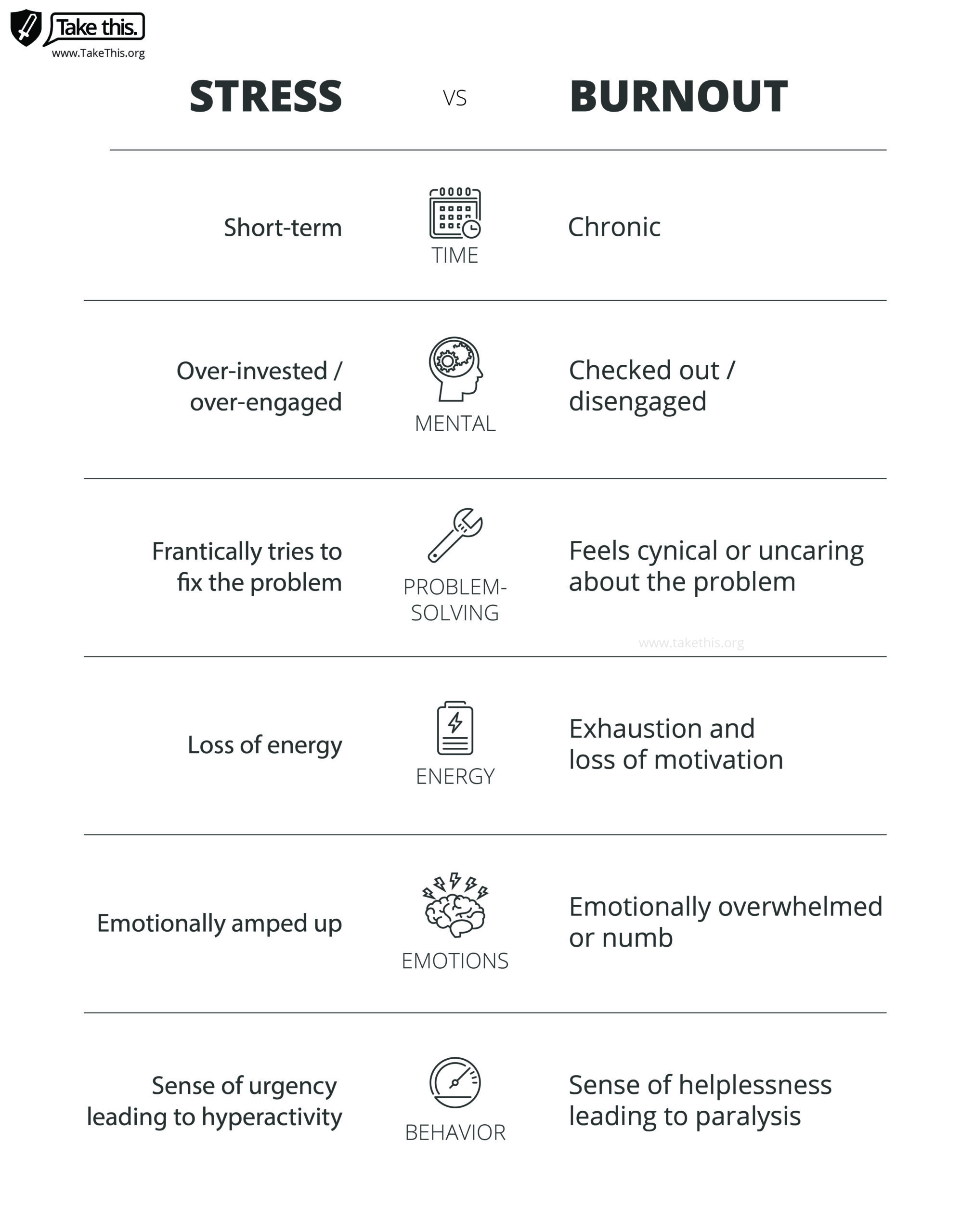Burnout Home | Burnout 101 | Burnout Factors | Content Creator Burnout
BURNOUT 101
Burnout is a term that gets thrown around a lot. But what does it actually mean to experience burnout? On this page, we broadly review what burnout is and what it isn’t.
Authors: Kelli N. Dunlap, PsyD & Raffael Boccamazzo, PsyD
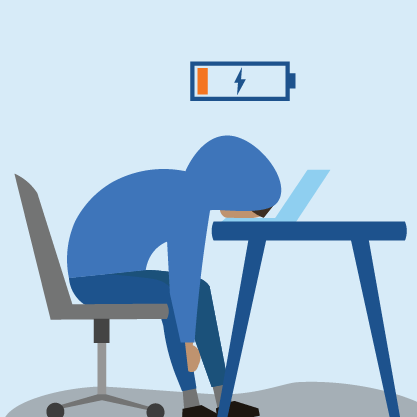
Burnout is more than feeling tired
Burnout is a chronic condition and its effects can linger for a long time – months, or even years. It is categorized by the World Health Organization an “occupational syndrome,” meaning that it’s a collection of symptoms that come together to create discomfort and distress due to a mismatch between a person and their working environment. In other words, burnout is the result of chronic stress in the workplace.
3 Features of Burnout
Burnout happens at the intersection of exhaustion, ineffectiveness, and cynicism / detachment.
Burnout – A Brief History
The term ‘burnout’ was first used in the 1970s by psychologist Herbert Freudenberger. It refers to certain chronic, negative symptoms he and colleagues noticed in each other due to the persistent stress of their jobs. In the early 1980s, psychologist Christina Maslach created the working model for occupational burnout that we still use today. It highlighted three main aspects of occupational burnout: Exhaustion, Ineffectiveness, and Personal Detachment (or Cynicism, depending on the source). Published research on burnout saw a major increase between 1990 and 2011, but it wasn’t until 2019 that the World Health Organization classified burnout as a recognized syndrome.

Click for more information on the history of burnout.
Stress, Chronic Stress, and Burnout
Stress is a normal human experience where the demands of a situation exceed our ability to cope with that situation. Stress can impact our physical, emotional, and psychological well-being as our bodies work to restore the balance between what’s being asked of us and what we have the ability to give. Stress can even be a good thing! The pressure you feel to study for a test or to prep for an interview – that’s stress motivating you to perform at your best.
Stress is simply our body’s alarm system alerting us to something being off. Normal, everyday stress is acute, meaning that it’s short-term: you’re having a normal day and then something happens, you have a stress response, the situation resolves and the stress fades, and you go back to your baseline.
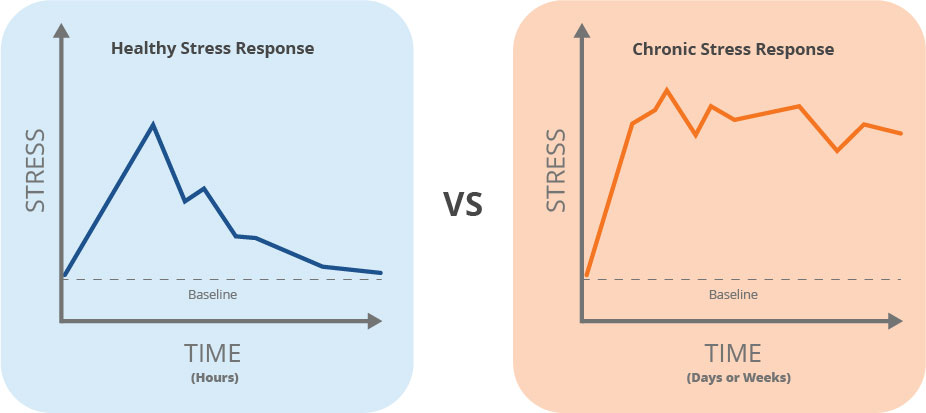
Problems with stress begin when the situation doesn’t resolve or the stress response doesn’t go away. The term for being in a persistent or continuous state of stress over a long period of time is chronic stress.
Stress vs Burnout
Chronic stress can cause a wide variety of physical, emotional, and psychological issues, and burnout is just one possible result. Burnout is an extreme form of chronic stress and the biggest difference is that people who are chronically stressed are over-engaged in their work whereas someone who is burned out is disengaged. In other words, someone dealing with chronic stress may throw themselves fully into a task, expending a lot of physical and mental energy to achieve a successful outcome and experiencing fatigue or low energy as a consequence. In the case of burnout, the person is often mentally checked out; they want nothing to do with the task and feel cynical or angry toward it and anything related to it (e.g. co-workers, related projects, management, etc.).
Thank you so much to all of the contributors and reviewers whose feedback and insight made this page possible:
BlushingCrafter
Dasbif
Goblinkatie
Haughty Chicken
Liz Favtastic
Rachel Kowert, PhD
Mxiety
EmotionalSupportUnicorn
Jebro
mugoi usagi
Jessica McCabe
Tanya DePass
KingArgaroth
Wordfangirl
Kaemsi
Micropixel
Sarah Hays, PsyD
Eve Crevoshay

